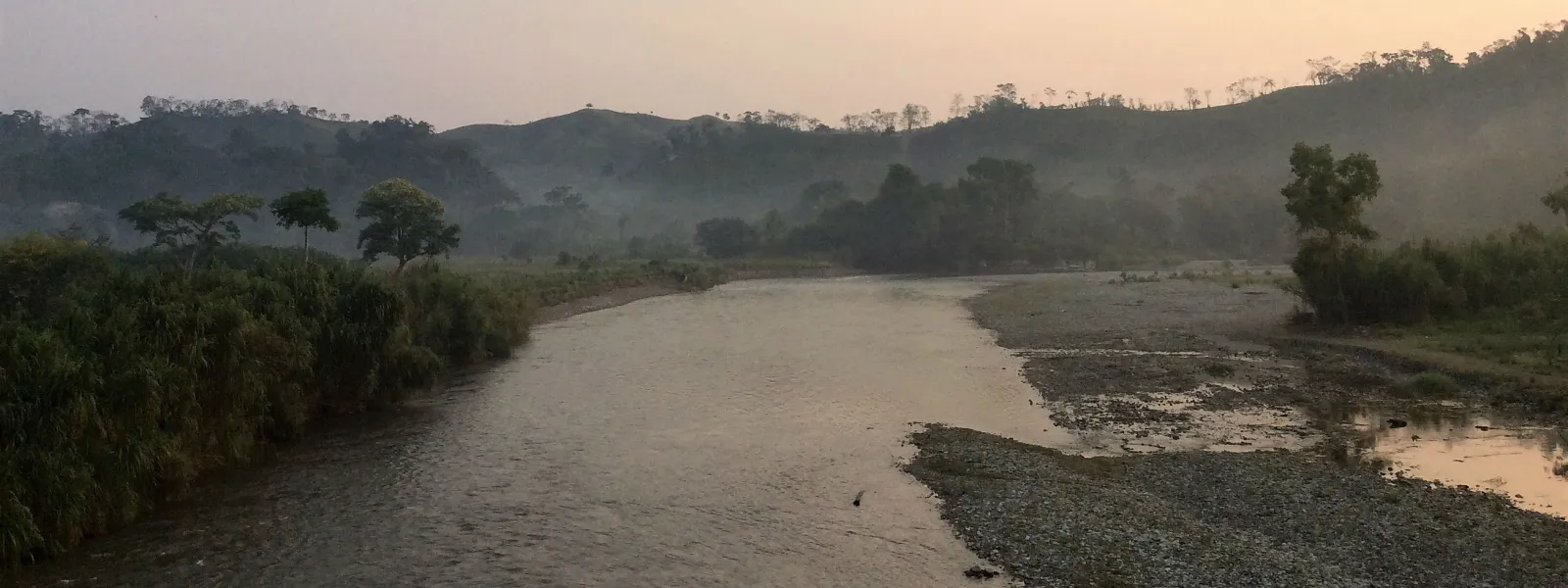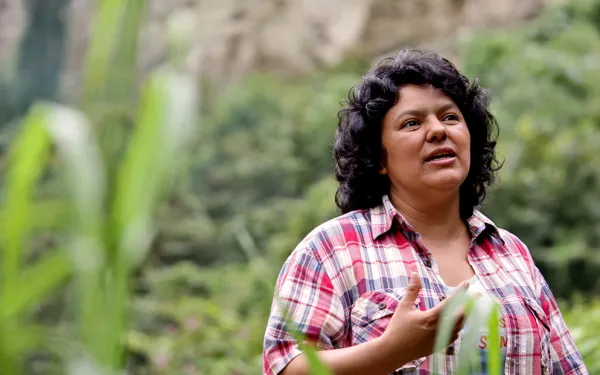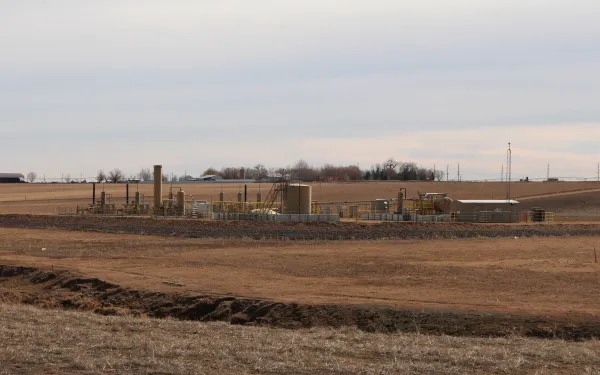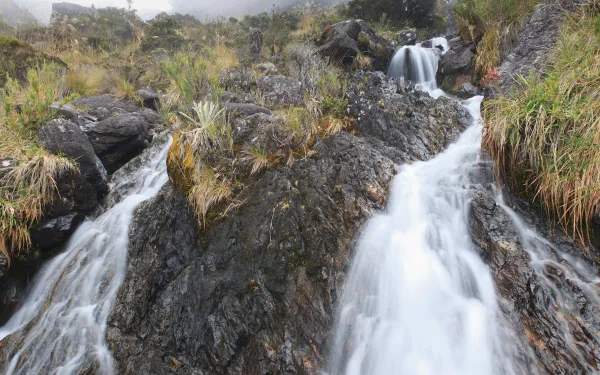
Project
Liliana Ávila /AIDAMayan women’s struggle before the Inter-American Development Bank in Guatemala
Mayan communities succeeded in getting the IDB Invest to develop a responsible exit plan after withdrawing its financing for two hydroelectric projects that negatively impacted ecosystems and the livelihoods of indigenous peoples, especially women, in the micro-region of Yichk'isis (Ixquisis).
In the struggle to defend their water, territory and way of life, indigenous Mayan communities in the Yichk'isis (Ixquisis) micro-region of northern Guatemala convinced the Inter-American Development Bank Group to withdraw its financing of two hydroelectric dams whose implementation violated their rights. The decision was also significant in that the IDB, for the first time, designed a responsible exit plan.
That historic advance was the result of the complaint that the communities filed in August 2018—with the support of AIDA, the Plurinational Ancestral Government of the Akateko, Chuj, and Q'anjob'al Native Nations, and the International Platform against Impunity. The complaint was filed with the Independent Consultation and Investigation Mechanism (MICI), the IDB Group's accountability office.
In resolving the case in September 2021, the MICI concluded that IDB Invest failed to comply with its own operational policies and safeguards, in the framework of the financing granted to the company Energía y Renovación S.A. for the implementation of the San Mateo and San Andrés hydroelectric projects.
Learn more about this achievement
In the mountains of Northwestern Guatemala, near the border with Mexico, the land is rich and fertile. Several important rivers and many other water sources feed the soil.
The residents of these mountains, many indigenous women of Mayan descent, have long depended on the waters to nourish them, to provide them with fish, as well as for agriculture, sanitation, and cooking.
But the construction of the San Mateo and San Andres dams has caused water scarcity and the contamination of rivers and other natural resources long cherished by the communities.
The near lack of water has also drastically reduced harvests, lessening the income gained from selling corn, wheat, beans, coffee, sugar cane and other products in the market. As a result, the conditions of poverty in the area have deepened.
And the risk situation is profound, particularly for women, who have played a very important role in the defense of water and territory threatened by hydroelectric projects, and are therefore victims of intimidation and stigmatization.
As guardians of their land and water, they have come to its defense and they’ll continue to prevent environmental deterioration from further harming their families.
Read our fact sheet on the case

Related projects

Remembering Berta Cáceres before the Green Climate Fund
On March 3, Berta Cáceres, an indigenous rights defender in Honduras, was assassinated. As a leader of COPINH, Berta was fighting against the implementation of an internationally funded large dam project. She was fighting for the health of the Gualarque River, and for the lives and livelihoods of the indigenous communities that depend upon it. Her death is a glimpse at the real life impacts that megaprojects may have. That’s why, at the closing of the 12th Meeting of the Board of the Green Climate Fund, I presented a message to the Board on behalf of the civil society organizations monitoring the development and decision making process of the mechanism. The message was intended as a reminder of the care with which financing decisions must be made, as the board prepares to review and approve more projects: “We would like to ask for a moment to remember Berta Cáceres, the indigenous environmental justice and human rights defender brutally murdered last week in Honduras. She was leading a fight against an internationally financed large dam that threatened her water, her land, and her people. We would like to ask all of you to do whatever you can to secure justice for Berta, and the immediate safe return of Gustavo Castro, head of Friends of the Earth Mexico, who was injured during the assassination and whose life is now in danger. Berta’s murder serves as a tragic reminder to the GCF of the incredible risks faced by rights defenders, and the deep need to safeguard their rights and the rights of the people and land they fight for. The GCF must not support questionable projects like the one that claimed her life and must obtain in all of its projects and programmes the free, prior and informed consent of people and communities to protect their livelihoods and survival.”
Read more
The Precautionary Principle: A legal tool against the impacts of fracking
This report analyzes the viability of using the precautionary principle to prevent, avoid or stop fracking operations in Latin America. These measures can result in prohibitions or moratoriums, as has occurred in various states, provinces and cities across America and Europe. Fracking is a technique that enables the exploration of historically inaccessible reservoirs of natural gas or petroleum. Governments and businesses across the world have pushed for the exploration of these reservoirs due to declining global reserves of conventional hydrocarbons, thanks to 150 years of overexploitation. The exploitation of unconventional hydrocarbons is technically more difficult, has a higher economic cost, and implies greater risks to the environment and public health.Promoting fracking to extract unconventional hydrocarbons is a bad decision on climatic, political, social and environmental levels. It deepens our dependence on fossil fuels and wastes energy and resources that should be directed at developing renewable energies.That's why we felt it important to examine the viability of applying the precautionary principle as a legal tool to avoid or slow down the risks and damages caused by fracking, particularly in countries that have begun or are planning to begin fracking in coming years. Read and download the report (in Spanish)
Read more
Organizations condemn Eco Oro’ threat to sue Colombia over efforts to protect páramos
The Canadian company developing the Angostura gold mine in the high-altitude wetlands, or páramo, of Santurbán, has announced that it could file an international arbitration suit against Colombia over measures to protect the páramo, which is an important source of water in the country. Washington/Ottawa/Bogotá/Bucaramanga/Ámsterdam – Civil society organizations condemn Eco Oro Minerals’ announcement that it will initiate international arbitration against the Colombian state. Eco Oro has stated its intention to sue Colombia under the investment chapter of the Canada Colombia Free Trade Agreement over measures that the Andean state has taken to protect the Santurbán páramo and páramos around the country from harmful activities such as large-scale mining. Eco Oro Minerals’ Angostura proposed gold mine in Santurbán has financial backing from the World Bank’s International Finance Corporation. The company argues that it will lose money because of the demarcation of the páramo and the recent decision from the Constitutional Court of Colombia reaffirming the prohibition against mining in all Colombian páramos. The company stated in a news release that it could bring the dispute to international arbitration and seek “monetary compensation for the damages suffered.” “Since the Angostura project got underway, it has been clear that páramos are constitutionally and legally protected and that this project could affect Santurbán, such that it might not be authorized. States should not be sanctioned for protecting their water sources, given that they are doing so in accordance with national and internacional obligations,” remarked Carlos Lozano Acosta from the Interamerican Association for Environmental Defense (AIDA). The páramos are the source of 70% of the fresh water that is consumed in Colombia and are essential for mitigating climate change. The proposed gold mine was already the subject of a complaint to the Compliance Advisor Ombudsman of the International Finance Corporation (IFC). The Committee in Defense of the Water and Páramo of Santurbán filed the complaint in 2012. The IFC is the part of the World Bank Group exclusively focused on the private sector. A report based on this investigation is expected in the coming months. “The implication and the irony of Eco Oro’s statement is that the IFC’s investment in the company could be used to litigate against member states of the World Bank. It’s time for the IFC to withdraw its investment from this company,” stated Carla García Zendejas from CIEL. “In 2011, the Colombian Ministry of the Environment denied an environmental permit for the Angostura project, demonstrating its inviability. The Constitutional Court’s decision reaffirmed this, finding that the right to water and the protection of the páramos takes precedent over the economic interests of companies trying to develop mining projects in these ecosystems,” commented Miguel Ramos from the Santurbán Committee. “Just as has we have seen in El Salvador, where the state is being sued for US$250 million for not having granted a Canadian company a mining permit when the company did not even fulfill local regulations, the international arbitration system enshrined in neoliberal investment agreements is a real threat to the sovereignty of states and peoples to decide over highly important issues, such as water,” said Jen Moore from MiningWatch Canada. The organizations call on the company to abstain from arbitration against the Colombian state and note the risk that other companies with projects in the Santurbán páramo could follow Eco Oro’s example. Find additional information here.
Read more